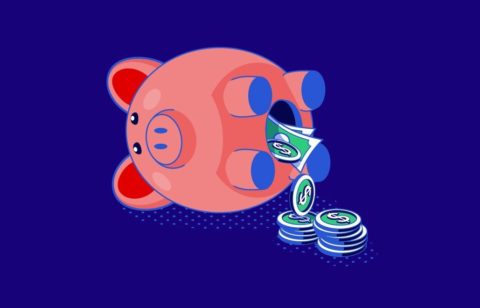Do you know the difference between debt management and debt settlement? In general, a debt management plan is one you develop in conjunction with a non-profit credit counseling agency where your goal would be to manage your debts until you become debt free. In most cases, the agency will assign a counselor who will work with your creditors on your behalf to restructure your debt in such a way that you’ll have more affordable payments. This counseling is sometimes free or at very low cost. For example, the National Foundation for Credit Counseling provides an initial session free or maybe for $20. If you enroll in its debt management program, it will cost you about $25 a month, in addition to a set-up fee of $30. If you’re in real trouble with your debt, the NFCC me waive even these costs.
Debt settlement
Debt settlement is different in that it usually requires you to stop payments on your debt and then try to negotiate lump sum settlements with your creditors. The settlements typically range from 30% to 70% of your actual balance.
DIY debt settlement
Some people are able to do debt settlement themselves. They simply stop making payments on their credit cards for at least six months, then contact the credit card providers and offer to make on-the-spot settlements. As I noted above, the settlements can be as litle as 30% of your balance. For example, you might be able to settle a $20,000 credit card bill for just $6,000 or $10,000.
Nerves of steel and cash in hand
If you’re interested in DIY debt settlement, you need two important things. First, you need nerves of steel and a great deal of intestinal fortitude to get through those six months when you’re not making any payment on your debts. Your credit card providers won’t be happy with you and you may receive numerous threatening phone calls. Or, worse yet, your debt could be turned over to a debt collector. You will also have to be a good “salesperson” because you will need to sell your lenders on the idea that if they refused to settle you will have to file for bankruptcy.
Second, you need to have cash in hand to make the actual settlements. In the example given in the previous paragraph, if you were able to settle a $20,000 debt for just $6000, you would have to have the $6,000 in hand to immediately wire the credit card company or to mail it in the form of a cashier’s check.
Debt settlement will affect your credit score
While debt settlement will not have as bad an effect on your credit score as if you had filed for bankruptcy, it will reported on your credit report as “paid by settlement.” This could not only possibly damage your credit score, it could actually reduce your chances of getting additional credit in the future.
If all this sounds like too much
If the idea of settling your debts for $.40 or $.50 on the dollar appeals to you but you don’t feel you could do it yourself, we can help. Our debt counselors will work with your creditors to get your debts reduced – probably by thousands of dollars. We can also create an affordable payment plan. We charge no upfront fees and if you’re dissatisfied with the debt settlement plan you’re offered, you can walk away without paying any fees or penalties.





